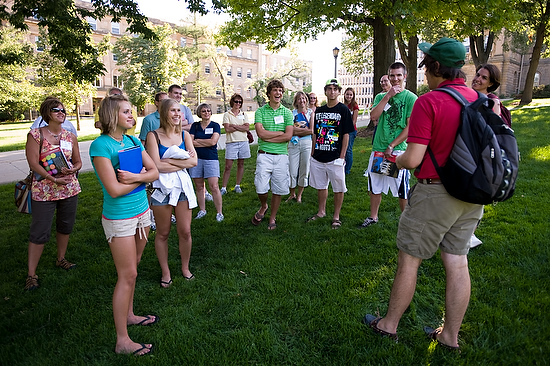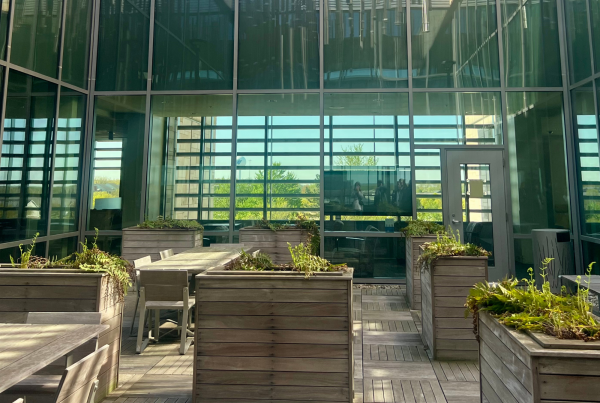Visiting campus is a very important step in the college application process and in deciding where to attend college once the acceptance letters start coming. Students can find out a lot more about colleges, and their own preferences, once they arrive on campus and collect information from different sources. Once students collect the information, however, they will need to process the information they receive to be able to decide which colleges they want to apply to, or which college they ultimately want to accept an admissions offer from. Read on for some suggestions on processing all the information and making a decision.
Record the information while it is still fresh in mind.
As they attend information sessions, talk with people on campus, and make observations, students should record that information. Whether old-school style with a pen and piece of paper, on a computer or cell phone, or even spoken into a voice recorder (most cell phones have the options), students should make every effort to have a record that they can return to. Visiting many colleges, details tend to blur together and it can become harder to remember specifics; keeping careful records helps avoid this problem and will help students compare colleges once they return from their campus visits. In addition to recording facts and information, students should also be attuned to how they feel on campus and keep a record of how they respond to schools.
Compare colleges with priorities, interests and needs.
How well does what a student learns about a college match what s/he student wants from his or her college experience? Does the college live up to what s/he thought about it based on research and recruitment materials? Whether the answer is yes or no, the response to the question is revealing.
If the student is a party animal, for instance, but most students on campus spend the weekend in the library, s/he should consider whether s/he would be happy there. Does the student feel more comfortable in a small seminar than in a large lecture? If s/he didn’t know this before, s/he may should take that new knowledge into account in the future.
Emphasis in college priorities will depend on individual students, but students should think about academics, beyond-the-classroom learning opportunities, location, campus culture, social life, extracurricular activities, university support for students, etc.
Think about what a college visit reveals
Also, students should pay attention to what changes in priorities a campus reveals. If a student always thought s/he’d prefer a small campus but upon visiting campus decides that s/he wants to run into new people on campus every so often, s/he should take these changes into account in their decision-making.
Talk to someone about it!
When making important decisions, it can often be helpful to have a sounding board. Speaking to someone else about impressions of colleges can help students figure out what they value in colleges, and perhaps alert students to patterns in their preferences. For instance, a parent or friend may point out that a student seems to mention how much s/he likes small classes and that may point to a preference for liberal arts colleges. Or they might point out that a student seems to really value being close to home after hearing that his or her favorite places are all in 50 miles from home.
While parents and friends can point out these patterns, of course, it falls to the student to think about what the observations of his/her sounding board mean. Listen to the thoughtful comments that friends, parents and relatives offer, and think about whether they are right, but do not allow them to direct the conversations or make the decisions.
Pay attention to feelings and instincts.
Students will spend four whole years at a college. No matter how perfect a college seemed on paper or how high its rankings, if a student feels uncomfortable or can’t see attending it after visiting college, s/he should honor those feelings. Conversely, if a student was lukewarm about a college until s/he visited it and feel in love with the school, the student should take those feelings into account as well. College preferences can change in response to campus visits, and that is okay. Fit is crucial to deciding where to apply and attend; the feeling a student gets on campus, good or bad, says a lot.




